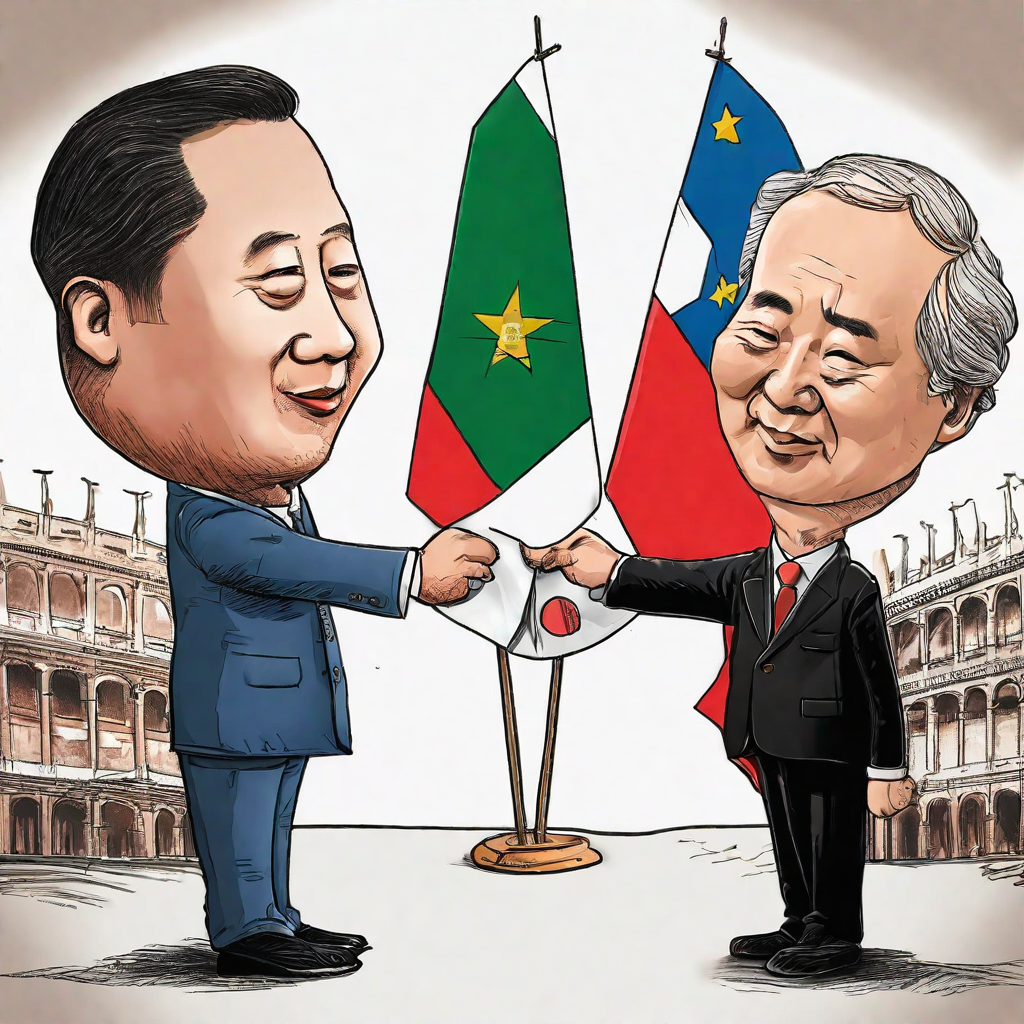
Italy’s recent decision to leave China’s Belt and Road Initiative (BRI) has sparked discussions about the future of trade and economic ties between the two countries. Prime Minister Giorgia Meloni, in her first public comments on the issue, expressed optimism about the potential for Italy to improve its cooperation with China even after withdrawing from the BRI. This decision comes as Italy’s expectations of economic gains from the BRI did not materialize. In this essay, we will delve into the reasons behind Italy’s departure, analyze the impact on trade relations, and explore the opportunities for improving trade and economic cooperation between Italy and China.
Italy, in 2019, became the first major Western nation to join China’s ambitious BRI, despite warnings from the United States about potential risks. However, when Prime Minister Meloni took office, she expressed her intention to withdraw from the BRI, citing the lack of expected results. The 2019 accord is set to expire in March 2024, and Italy has formally notified China that it will not be renewing the agreement. While Italy’s decision to leave the BRI may have surprised some, it underscores the country’s desire to reassess its strategic partnerships and prioritize its national interests.
One of the main reasons behind Italy’s departure from the BRI is the perceived failure to achieve the expected economic benefits. Italy had hoped for a trade bonanza when it joined the BRI, aiming to boost its exports to China. However, the data shows that Chinese firms were the main beneficiaries of the trade relationship. Italian exports to China increased from 13 billion euros in 2019 to 16.4 billion euros in the following year, while Chinese exports to Italy surged from 31.7 billion euros to 57.5 billion euros during the same period. This trade imbalance raises concerns about the effectiveness of the BRI in promoting balanced economic growth and mutual benefits.
Moreover, Italy’s departure from the BRI reflects its commitment to protecting its national security and critical infrastructure. The United States had warned that participating in the BRI could potentially allow China to gain control over sensitive technologies and vital infrastructure. Italy’s decision to leave the BRI highlights its desire to maintain control over its strategic assets and mitigate any potential risks associated with foreign investments. This approach aligns with the concerns expressed by other European countries regarding China’s growing influence and economic dominance.
Despite leaving the BRI, Italy remains optimistic about the potential for improving trade and economic ties with China. Prime Minister Meloni emphasized the need to enhance cooperation with China in the areas of trade and the economy. By exploring alternative avenues for collaboration, Italy aims to establish a more balanced and mutually beneficial trade relationship with China. This approach aligns with Italy’s broader strategy to diversify its international partnerships and maximize economic opportunities.
Italy’s departure from the BRI does not signify a complete severance of ties with China. The country seeks to maintain strategic relations and has planned visits by Foreign Minister Antonio Tajani and President Sergio Mattarella to China. Prime Minister Meloni herself expressed her desire to visit Beijing, indicating Italy’s continued interest in engaging with China. These diplomatic initiatives demonstrate Italy’s intention to forge a new path in its relationship with China, one that is based on shared economic interests and strategic cooperation.
While Italy’s decision to leave the BRI may have immediate implications for trade relations, it also presents new opportunities for both countries. Italy’s withdrawal provides an opportunity for the country to reassess its trade policies and explore alternative avenues for economic growth. By diversifying its economic partnerships and focusing on sectors where Italy has a competitive advantage, such as high-end manufacturing, luxury goods, and tourism, the country can seek new trade opportunities with China and other global partners.
Simultaneously, China can view Italy’s departure as an opportunity to reevaluate its approach to the BRI and address concerns raised by partner countries. The departure of a major Western nation like Italy highlights the need for China to address issues of transparency, debt sustainability, and fair trade practices within the BRI framework. By addressing these concerns, China can enhance its credibility and foster stronger trade relationships with partner countries.
In conclusion, Italy’s departure from China’s Belt and Road Initiative presents an opportunity for both countries to reevaluate their trade and economic ties. Italy’s decision reflects its desire to prioritize national interests, protect critical infrastructure, and seek more balanced trade relationships. Despite leaving the BRI, Italy remains committed to fostering cooperation with China in trade and the economy. This presents an opportunity for both countries to explore alternative avenues for collaboration and establish mutually beneficial trade relations. As Italy and China navigate this new phase in their relationship, it is essential
Additional Information Cited From: https://www.reuters.com/world/china/italy-tells-china-it-is-leaving-belt-road-initiative-sources-2023-12-06/
